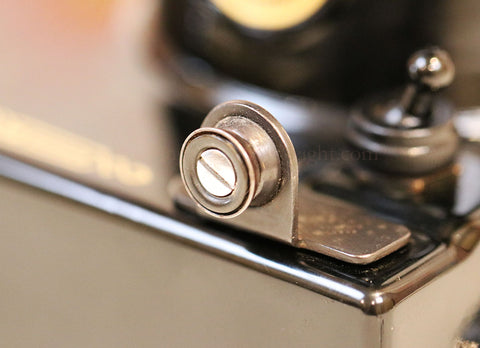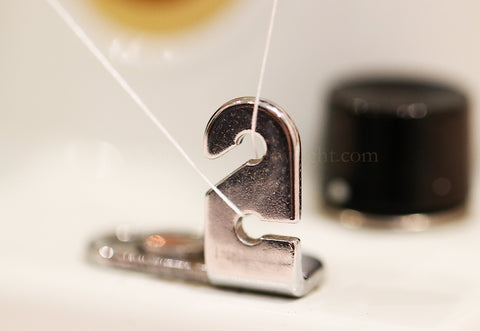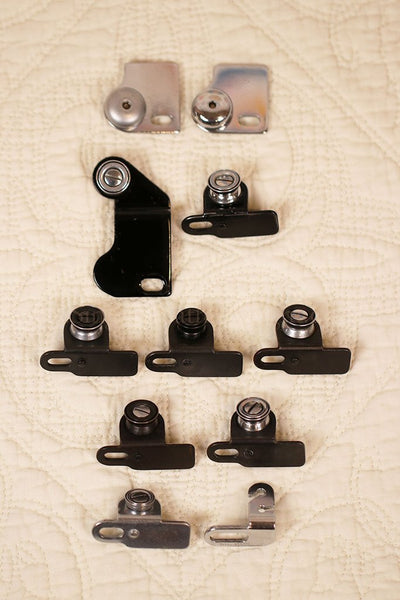A Concise History and Timeline of the Featherweight Bobbin Winder Tension Unit
In the photo below you will see 11 bobbin winder tension units. You can probably see how each one is different, but the question is...are they really all that different? Singer made approximately six standard unique units. Most of the differences that can be seen in the photo are just a different configuration of the same parts. In this post I will walk you through the true differences and peculiarities of each unit.
1933-1935:
You can see how the unit on the right has sort of a non-glare finish on the bell portion. Each "Bell" is the same, but the one on the right had an extra step in the finishing process when it was being manufactured. Before it was chromed it was "acid etched." This is the process that creates a non-glare finish. It is very uncommon to see the "Bell" with this finish type, and it was possibly something Singer was experimenting with.
The next unit was still mounted on the front of the machine like the School Bell unit, but it was designed to come around to the top of the machine. Singer most likely designed this unit because the School Bell style was getting damaged when the machine was put in its case. The School Bell unit would also prevent the machine from sliding down into the Featherweight card table. With this design, Singer was still able to use the same machine mold, and the same screw hole to secure the unit.
1935-1936

The third unit is the first of a much more common top-mounted style. This one is unique from the others in the fact that it was a painted unit and not a black-oxide finish like the later ones. It is also the standard unit on the earlier 221K Featherweights.
1936-1947

It is also the last black unit to feature a chrome screw attaching it to the machine bed as seen behind the unit below.

The next units that were attached from 1947-1953 may look a little bit different from one another, but that is just how they were configured. In our post about Blackside Featherweight parts I talk about all the Black-Oxide parts that were seen in the late 1940s and early 1950s. During this time Singer made the washers, discs, brackets, and screws on the Bobbin Winder Tension Unit in Blackside. The chrome parts and Blackside parts were all mixed together, and that is why you will see many different variations of the same unit.
1947-1953:





This one is slightly unique in the fact that the cupped discs are a fraction smaller than the others.

The unit for the Featherweight 221K and 222K was quite similar to the ones shown prior, but the discs were shaped a little bit different.

The one on the left is from an earlier 221K or 222K.
The final unit on the black and tan Featherweights was all chrome and came with either a chrome or black screw to hold the unit in place.
1953-1962

Here is parts layout for the chrome unit compared to the earlier style:

The unit that was included on White Featherweights is much different. Some even wonder how it is supposed to be threaded before heading up to the bobbin for bobbin winding.
1964-1969

Here is a close-up of how it is to be threaded. The tension can't be adjusted like the earlier styles, which had an adjusting screw on the front, but the weaving of thread in and out of the slots creates a natural tension for winding a bobbin.

These are interesting Bobbin Winder Tension Unit changes over an approximate 36-year time period. Let us know what style you have in the comments!




